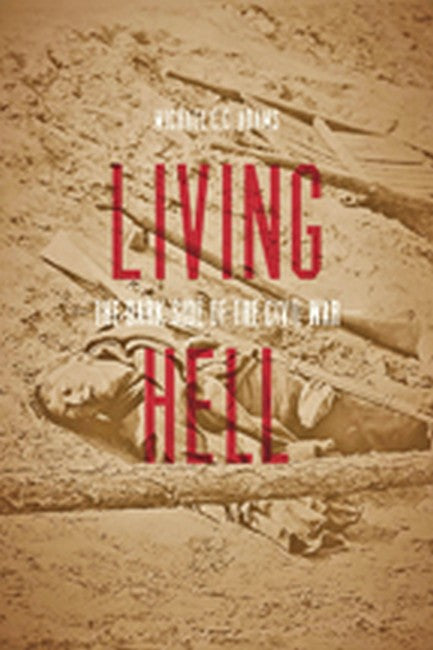Many Americans, argues Michael C. C. Adams, tend to think of the Civil War as glorious and full of pageantry. Millions of tourists flock to battlefields each year as vacation destinations, their perceptions of the war shaped by reenactors in blue and gray uniforms launching charges and countercharges over idyllic scenery while flags snap in the breeze. Living Hell brings us back to reality with a sober depiction of the cruelty, suffering, and almost unimaginable loss of life and property caused by this merciless war.Perhaps because the United States has not seen conventional war on its own soil since 1865, the collective memory of its horror has faded, so that we have sanitized and romanticized even the experience of the Civil War. Neither film nor reenactment can fully capture the hard truth of the four-year conflict. Living Hell presents a stark portrait of the human costs of the Civil War and gives readers a more accurate appreciation of its profound and lasting consequences.Adams examines the sharp contrast between the expectations of recruits versus the realities of communal living, the enormous problems of dirt and exposure, poor diet, malnutrition, and disease. He describes the slaughter produced by close-order combat, the difficulties of cleaning up the battlefieldswhere tens of thousands of dead and wounded often lay in an area of only a few square milesand the resulting psychological damage survivors experienced.Drawing extensively on letters and memoirs of individual soldiers, Adams assembles vivid accounts of the distress Confederate and Union soldiers faced daily: sickness, exhaustion, hunger, devastating injuries, and makeshift hospitals where saws were often the medical instrument of choice. Inverting Robert E. Lee's famous line about war, Adams suggests that too many Americans become fond of war out of ignorance of its terrors. Providing a powerful counterpoint to Civil War glorification, Living Hell echoes William Tecumseh Sherman's comment that war is cruelty and cannot be refined.

